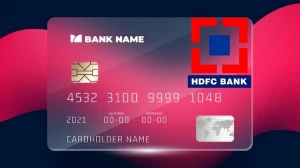
- Home »
- Credit Card »
- How to Get 800 Credit Score?
How to Get 800 Credit Score?
To attain an 800 credit score, focus on building a robust credit history, prioritize timely payments, maintain a low credit utilization ratio, regularly monitor your credit, and promptly dispute any errors found in your reports.
by Sai V
Updated Nov 15, 2023
On This Page
How to Get 800 Credit Score?
Unlocking the path to an 800 credit score involves strategic steps, from cultivating a strong credit history to timely payments and vigilant monitoring, here's a breakdown to guide you on this credit-worthy journey.
Building a Strong Credit History
To achieve an 800 credit score, focus on establishing or rebuilding your credit history. Recognizing that the length of your credit history contributes 15% to your credit score, it's crucial to address negative, minimal, or nonexistent credit history. Consider options like a credit-builder loan, designed to add positive payment history to your credit report, or a secured credit card, which necessitates a cash deposit equal to your credit limit.
Timely Payment Management
The most pivotal factor in credit scoring is your payment history, constituting 35% of your FICO score. Missing payments, especially if they are 30 days overdue, can significantly impact your credit score. To maintain a stellar score, utilize tools such as spreadsheets or autopay to ensure timely payment. Notably, individuals with 800+ credit scores often pay off their balances in full each month.
Managing Credit Utilization Ratio
The credit utilization ratio holds the second-highest weight in credit scoring at 30%. This ratio compares the amount of credit you use to your total credit limit. Aim to use no more than 30% of your total credit limit, and if possible, keep the ratio closer to 0% to boost your credit score. Vigilant management of this ratio contributes significantly to maintaining a high credit score.
Regular Monitoring and Review
To track your progress, consistently monitor your credit score and credit reports. Utilize free credit scoring websites for regular checks, some of which provide recommendations for improvement. Since your credit score relies on information from credit reports, it's essential to review them periodically. Access all three credit reports for free weekly through AnnualCreditReport.com until April 20, 2022.
Dispute Errors for Accuracy
In the pursuit of an 800 credit score, thorough examination of your credit reports is vital. If inaccuracies or errors are identified, promptly file a dispute with the relevant credit bureau. This proactive step ensures the removal of any erroneous information, maintaining the accuracy of your credit profile.
What Steps Can Be Taken to Keep an 800 Credit Score?
Here are five steps you can take to maintain an 800 credit score:
Regular Monitoring
Keep a close eye on your credit score by using reputable credit monitoring services. Regularly check your credit reports for any inaccuracies or suspicious activities and address them promptly.
Low Credit Utilization
Maintain a low credit utilization ratio by using only a small percentage of your available credit. Strive to keep credit card balances well below 30% of the credit limit to demonstrate responsible credit management.
On-Time Payments
Ensure timely payment of all bills, including credit cards, loans, and utilities. Consistent on-time payments contribute significantly to a high credit score.
Diversify Credit Accounts
Maintain a diverse mix of credit types, such as credit cards, installment loans, and mortgages. Avoid opening new credit accounts unnecessarily, but ensure a balanced credit portfolio over time.
Responsible Credit Management
Practice responsible credit management by avoiding maxing out credit cards, co-signing cautiously, and making informed financial decisions. Build a positive credit history by using credit wisely and demonstrating long-term financial responsibility.
What Can Be Done With an 800 Credit Score?
Having an 800 credit score opens up a plethora of financial opportunities and benefits. Here are five steps you can take to leverage your exceptional credit score:
Maintain Pristine Credit Habits
The foundation of an 800 credit score is built on consistently responsible credit behavior. Continue the good habits that got you there, such as never missing a payment. Set up alerts or utilize autopay to ensure timely payments on credit cards and loans, reinforcing your creditworthiness.
Keep Credit Utilization Low
Exceptional credit scorers understand the importance of maintaining low credit utilization. Aim to pay off your credit card balances in full before the grace period expires. This practice not only contributes positively to your credit score but also demonstrates financial responsibility to lenders.
Exercise Caution to Avoid Missteps
Despite having an outstanding credit score, it's crucial not to become complacent. Avoid assuming that a single missed payment won't affect your score. Even with an 800 credit score, the impact of a misstep can be significant. Stay vigilant and continue managing your credit responsibly.
Understand Temporary Fluctuations
Recognize that day-to-day fluctuations in your credit score may occur. For instance, applying for a new credit card or making a substantial purchase can temporarily dip your score below 800. However, if you're maintaining responsible credit habits, these fluctuations are generally short-lived and should not be a cause for major concern.
Leverage Financial Opportunities
With an 800 credit score, you are in an advantageous position to capitalize on various financial opportunities. Whether it's securing lower interest rates on loans, obtaining premium credit cards with exclusive perks, or qualifying for favorable mortgage terms, your excellent credit score opens doors to a wide array of financial benefits.
Explore the intricate world of Finance with ease as MarketsHost presents you with a rich reservoir of knowledge, helping you make informed financial decisions.
What Are the Advantages of Attaining an Exceptional Credit Score?
Achieving an exceptional credit score, like the coveted "800 club," unlocks financial perks such as better approval odds, premium credit offers, competitive rates, higher limits, and potential insurance savings.
- Increased chances of credit approval due to exceeding lender requirements.
- Enhanced access to the best credit card offers for individuals with excellent credit.
- Improved approval odds for mortgages, auto loans, and various lines of credit.
- Competitive interest rate offers, leading to potential savings on loans and credit balances.
- Access to higher credit limits, bolstering purchasing power.
- Contribution to maintaining a low credit utilization ratio for sustained excellence.
- Potential for lower insurance premiums in states considering credit-based scores.
How to Get 800 Credit Score - FAQs
1. How can I improve my credit history to reach an 800 credit score?
Focus on timely payments, consider credit-builder loans, and use secured credit cards to establish a strong credit history.
2. What is the most crucial factor in achieving an 800 credit score?
Timely payment management is key, constituting 35% of your FICO score.
3. What steps can I take to maintain an 800 credit score once achieved?
Regularly monitor your credit, maintain low credit utilization, ensure on-time payments, diversify credit accounts, and practice responsible credit management.
4. How do I leverage the benefits of having an 800 credit score?
Capitalize on financial opportunities, secure lower interest rates, obtain premium credit cards, and qualify for favorable mortgage terms.
5. What advantages come with attaining an exceptional credit score?
Enjoy better approval odds, access premium credit offers, secure competitive rates and higher limits, and potentially save on insurance premiums.




